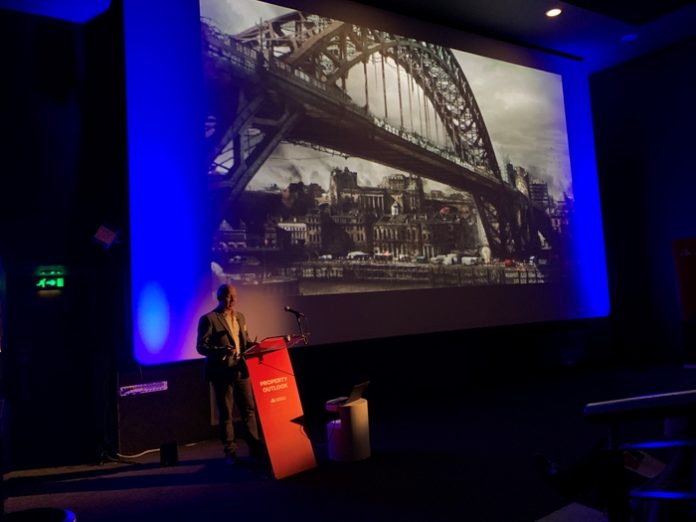Any ‘Brexit bounce’ in manufacturing could be stalled by a lack of suitable stock in the North East industrial market, according to Cushman & Wakefield.
The property services firm warned that an acute shortage of stock following a record year of take-up, in which over six million sq ft of industrial space was let, could have a detrimental effect if the manufacturing sector sees an upturn following a favourable Brexit solution.
The findings were presented at Cushman & Wakefield’s annual Property Outlook event for the Commercial Property Market for 2019 and beyond held at the Tyneside Cinema in Newcastle.
Richard Turner, Partner and Head of Investment at Cushman & Wakefield in Newcastle said: “Following Amazon’s letting of 1.5 million sq ft in Darlington and 2 million sq ft in Durham for new fulfillment centres, the North East industrial market now has less space available than at any time in living memory with no grade A buildings above 50,000 sq ft. There are plenty of requirements in the market and some occupiers are being forced to look at tertiary buildings.”
The presentation also revealed that the Offices market in Newcastle is also suffering from a similar lack of grade A stock which has steadily been reducing since 2011. However, there is now a tangible development pipeline.
He said: “L&G’s The Lumen at Newcastle Helix is now coming out of the ground and we predict there could be three office pre-lets in the city this year. The Offices market will be subdued this year due to wider economic and political uncertainty and there’s also a trough in the number of lease expiries and breaks in 2019. This should nearly double next year which should free up the market.”
Richard Turner continued: “Elsewhere in the region we are seeing proactive Councils driving forward the first speculative office developments in Middlesbrough, Sunderland and Darlington for decades. This is only possible because Councils are now seeing it as part of the wider regeneration of town and city centres and are sponsoring developments through long-term lease wrappers or developing directly or in a joint venture.”
In the investment market, investors are focusing their attentions on ‘Beds (hotels, build to rent, student accommodation) Sheds and Alternatives’, with retail heavily out of favour.
There were also presentations from Patrick Scanlon, Head of UK Offices Insight at Cushman & Wakefield who discussed ‘Opportunities Amidst Uncertainty’. He highlighted that despite concerns over Brexit and Global trade, UK business has ‘held its nerve’.
Patrick Scanlon said: “The impact of Brexit on UK financial services and real estate has been over-stated with fewer firms relocating staff into EU countries than had been forecast. The threat of trade wars and protectionism is likely to have a far greater impact on the real estate sector, although Brexit may cause short-term disruption.”
He continued: “As Brexit and other sources of uncertainty dominate the headlines, we can get fixated on the ‘here and now’ but real estate is a long-term game.
“Over the coming years, there are many non-cyclical trends that will create opportunities for investors and occupiers who stay ahead of the curve. These trends will be in place regardless of global trade volumes, Brexit or any other external force.”
These opportunities include the next generation of tenants, the rise of Coworking and Alternative real estate, such as healthcare and student living, which accounted for an all-time high of 32% of regional investment volumes in 2018.
Patrick concluded: “Markets that have strong fundamentals will stay popular with core investors. Meanwhile, the more challenged parts of the market will see pricing drift until they look good value for opportunistic investors looking to redevelop and repurpose assets. There is plenty of capital looking for these opportunities.”
Richard Pickering, Cushman & Wakefield’s Head of Futures Strategy concluded by discussing the impact digitisation will have on real estate over a longer horizon. He considered the potential for activities currently carried out using real estate to be substituted by digital alternatives, and posed the question, ‘Could this mean the end of real estate?’
“In short, no,” said Richard “however, we in the industry need to treat this as a wake-up call. The same trends we see today in retail, have the potential to bleed into other sectors. Digital business models tend to have cost and convenience advantages. This sets a challenge for real estate investors to reposition their assets and portfolios to focus on real estate’s inherent strengths, such as end-user engagement and experience. For the best innovations in this space we need to look increasingly outside of our industry, and be willing to challenge long held paradigms of the role of real estate.”





















